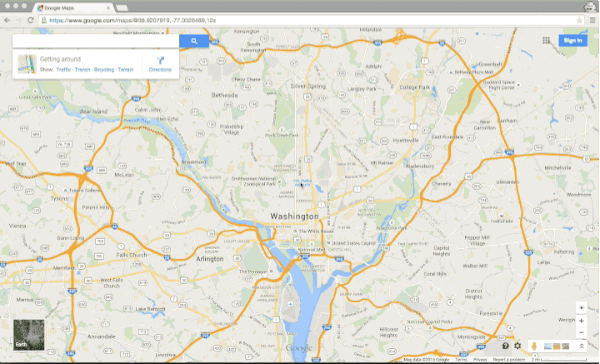This post contains language some may find offensive.
Google says it screwed up and is sorry for pointing people toward the White House, historically black colleges, and other locations when shockingly racist search terms were entered into Google Maps.
“We were deeply upset by this issue, and we are fixing it now. We apologize this has taken some time to resolve, and want to share more about what we are doing to correct the problem,” says Google.
“At Google, we work hard to bring people the information they are looking for, including information about the physical world through Google Maps. Our ranking systems are designed to return results that match a person’s query. For Maps, this means using content about businesses and other public places from across the web. But this week, we heard about a failure in our system—loud and clear. Certain offensive search terms were triggering unexpected maps results, typically because people had used the offensive term in online discussions of the place. This surfaced inappropriate results that users likely weren’t looking for.”

(GIF via the Washington Post)
Long story short, Google’s practice of pulling in data from all across the web and using it to categorize and label places inside Maps kind of bit them in the ass.
Danny Sullivan at Search Engine Land has a nice description of how Maps searches for ‘nigger house’, ‘nigger king’ wound up directing people toward the Presidential residence:
To understand more, say Google knows about a local sporting goods store. The owner of that store might explain in the description it provides to Google Maps that it sells baseball, football and hockey equipment. It also sells other sporting equipment, but if these things aren’t also listed in its description or on its associated web site, the store might not be deemed relevant for those things.
With the Pigeon Update, Google sought to correct this. Imagine that some customer of the site wrote a blog post saying that the store was a great place to get skiing equipment. Google, seeing the business named in that post, might effectively add this information to the business listing, making it relevant for skiing equipment. To our understanding, there doesn’t even have to be a link to the business site or listing in Google Maps. Using a business name alone might be enough to create the connection.
Ok, so how is Google planning on fixing this?
The same way they fixed another issue many years ago, apparently.
“Our team has been working hard to fix this issue. Building upon a key algorithmic change we developed for Google Search, we’ve started to update our ranking system to address the majority of these searches—this will gradually roll out globally and we’ll continue to refine our systems over time. Simply put, you shouldn’t see these kinds of results in Google Maps, and we’re taking steps to make sure you don’t,” says Google.
That “key algorithmic change” involved tackling Googlebombs – the practice many pranksters used to make sites rank for certain, often derogatory searches by linking to the site behind “obscure or meaningless queries.” If enough people link to George W. Bush’s page using the phrase “miserable failure”, then his page will pop up at the top of searches for the term “miserable failure”. That actually happened by the way.
But Google made some algorithmic changes so that it doesn’t really work like that anymore. That’s surely what they hope to do with this whole Maps fiasco. Google is likely tweaking its algorithms to make sure the words and phrases associated with map listings actually appear on the location’s description and official pages.
In other, depressing news, it’s 2015 and there are still a bunch of people calling The White House ‘nigger house’ online.
Image via Cezary p, Wikimedia Commons




 WebProNews is an iEntry Publication
WebProNews is an iEntry Publication